Sometimes the inside of the home gets stuffy when the doors and windows haven't been opened in a while. This air is stale and smelly, so it's a good idea to purge it by airing out the house.
And thankfully, the process is fairly straightforward. But how often should a house be aired out? Rest assured because we did the research to bring you the answer.
It's generally recommended to air out your home either daily or once every other day for 5-15 minutes to purge the home of stale air and replace it with fresh clean air from outside. However, depending on the indoor and outdoor air quality, the climate, and any indoor projects you have going on, you might have to air out your house more or less frequently.
If you still have some questions about house airing protocol, don't worry. In this guide, we'll discuss this topic at length, and we'll answer some additional questions you might have. Just keep reading!
Basic House Airing Protocol
Believe it or not, airing out a house is a simple process.
In most situations, it's generally sufficient to simply open two doors (ideally a front and back door) for 5-15 minutes daily to allow the fresh outside air to replace the musty indoor air.
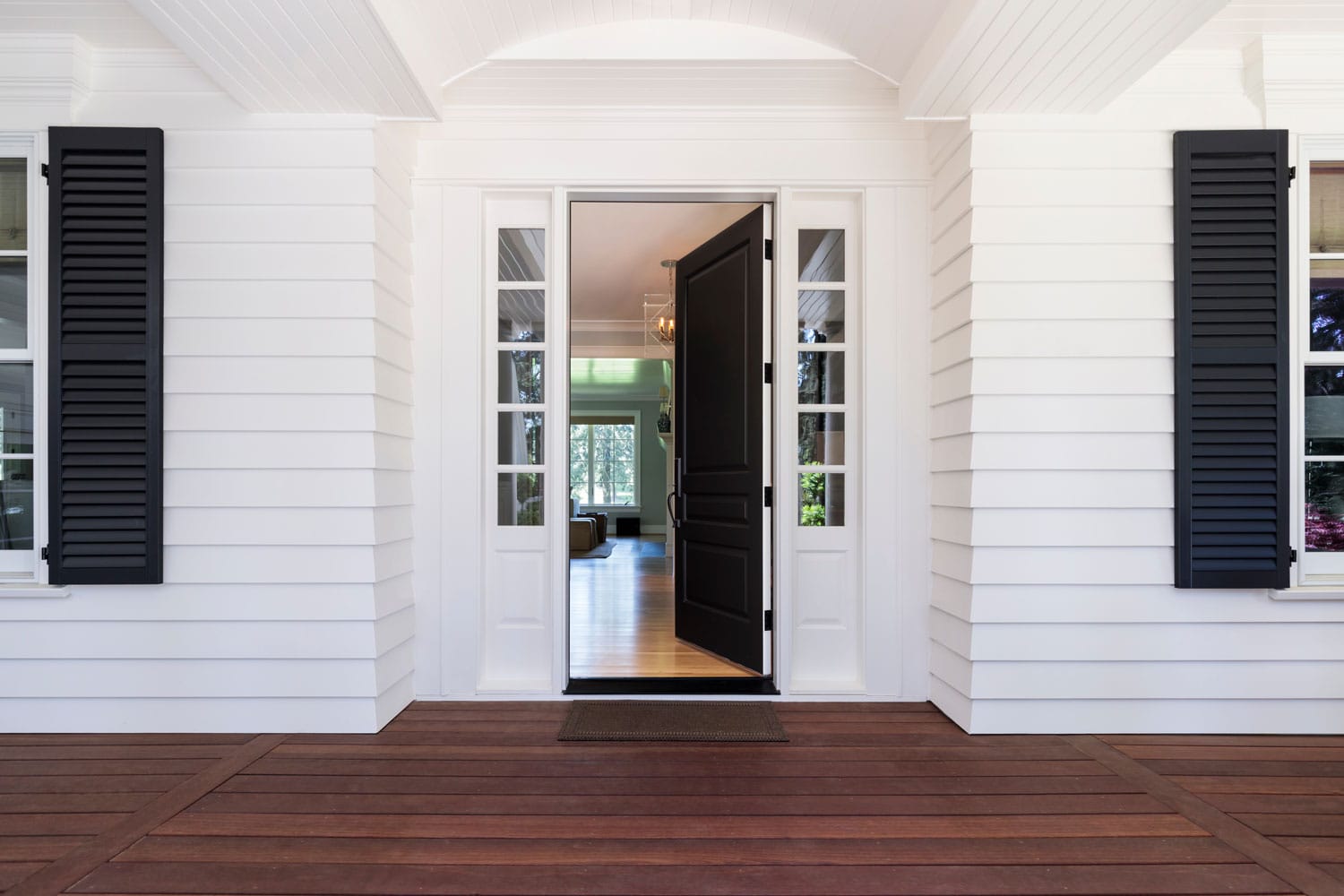
If possible, it's important to open two doors on opposite sides of the house for maximum ventilation.
Doing so greatly improves airflow through the house, and you'll find that it purges the foul air and replaces it with fresh air much more efficiently.
With that being said, some situations might require you to air out your house more or less frequently and for a longer or shorter duration, and we'll discuss these cases below.
You might also like: How Many Air Filters Does A House Have? [And Where Are Filters Located]
Indoor And Outdoor Air Quality
Generally speaking, the quality of the air outside is often better than the quality of the stale air inside.
In most cases, even the seemingly dirty outside air is cleaner than the carbon dioxide-rich air that has been accumulating inside your house.
However, there are some exceptions. For example, if there have been a lot of wildfires in the surrounding area, the outside air quality likely won't be of a higher quality than the air inside the house.
If this is the case, airing out the house would likely bring harmful contaminants into your home. Thus, in a rare situation like this, it's best to avoid airing out the house until the outside air quality improves.
On the other hand, if you cook or use a woodburning fireplace frequently, the air quality inside will likely be significantly worse than the outside air quality. If this describes your house, you should air it out more frequently.
Climate
The climate is another factor that will determine the frequency at which you air out your house. For example, if you live in a humid climate, airing out your house will likely bring that humid air into your home, which is counterproductive.
However, the stale inside air still needs to be purged, so if you live in such a climate, you should air out your house less frequently or for a shorter period of time to minimize the amount of humid air that enters the house.
Interior Projects
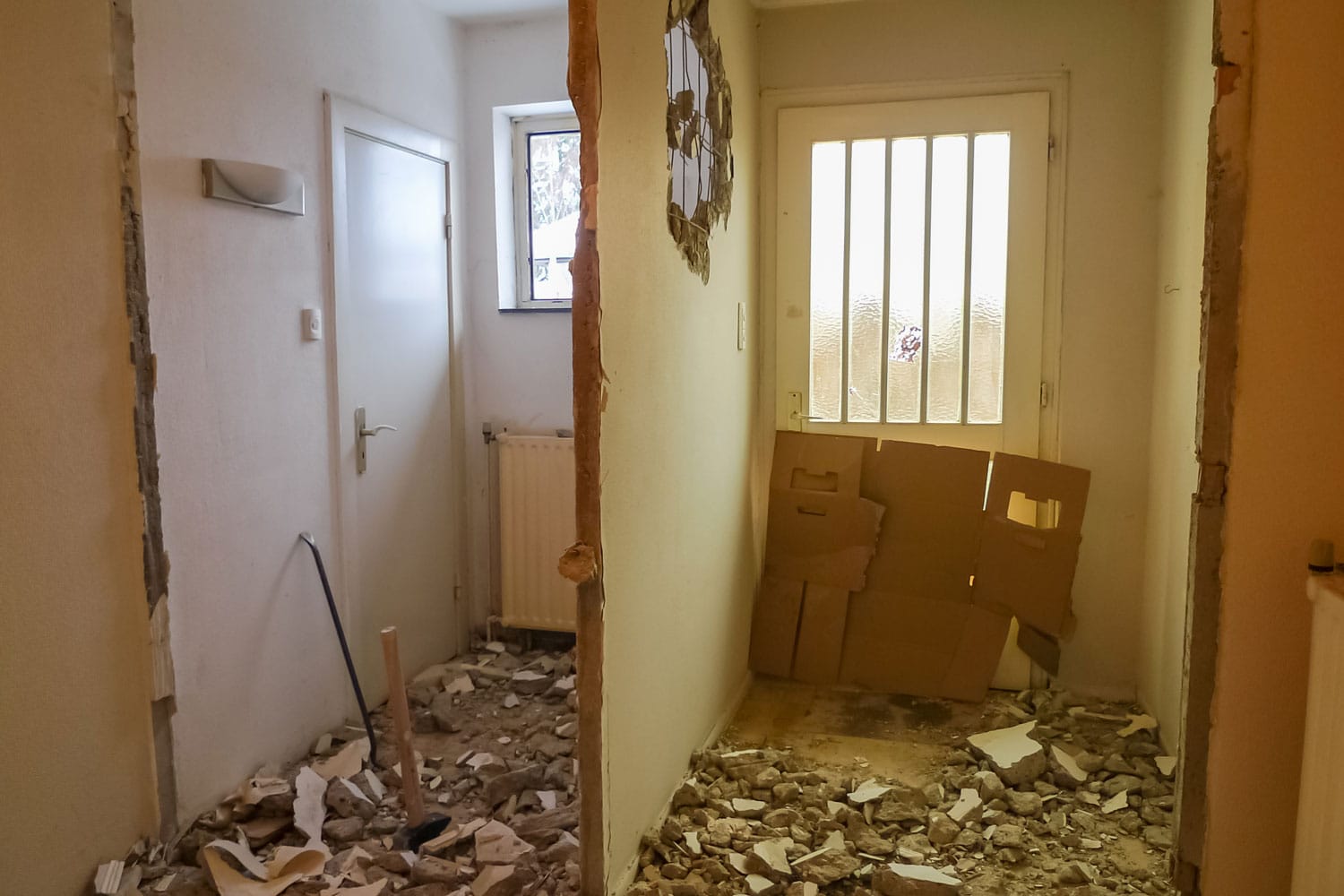
If you're renovating the inside of your house or working on some kind of interior project that introduces noxious fumes and/or foul odors into the house, you should air out your house more frequently and for a longer period of time.
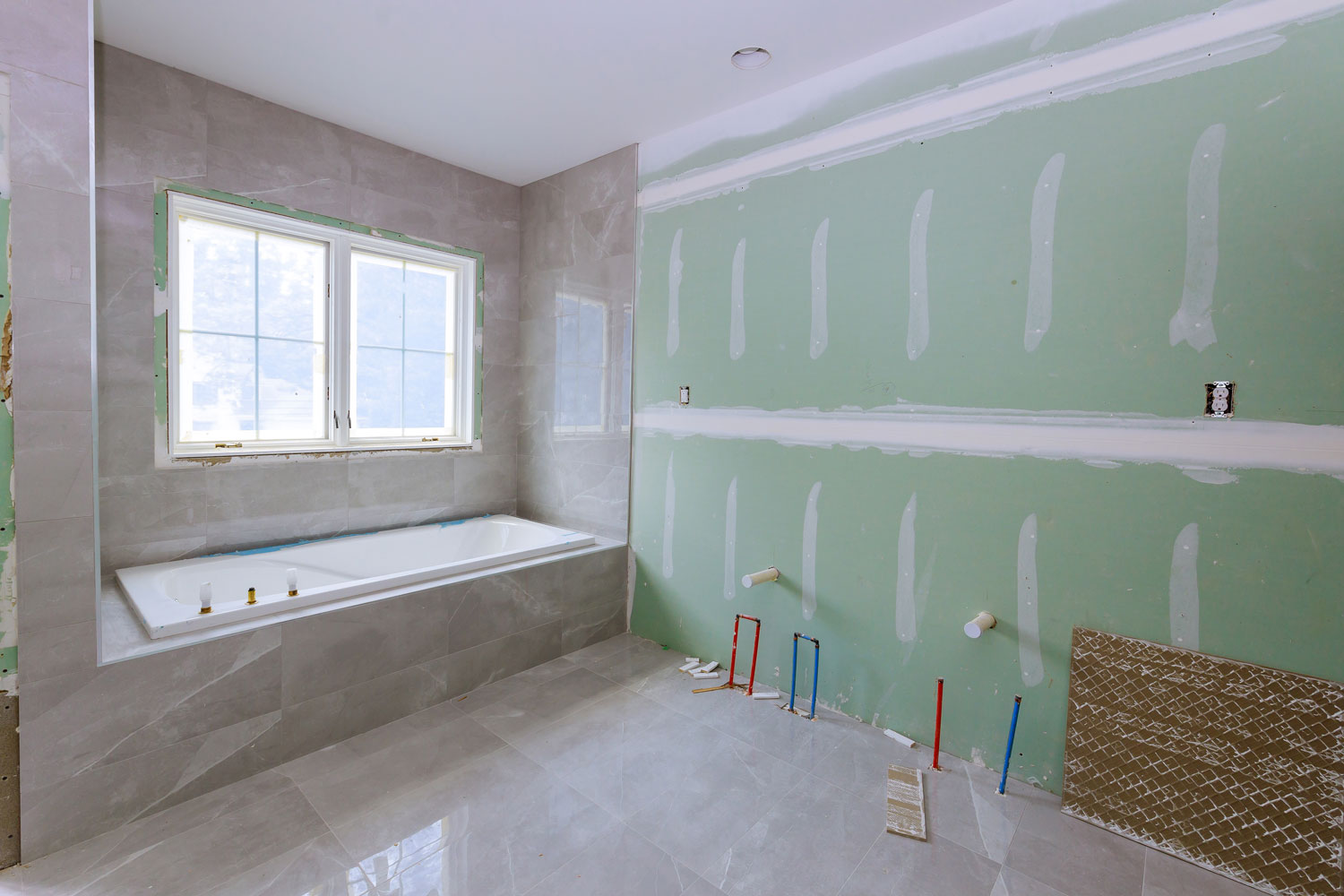
For example, paint fumes are both harmful and unpleasant, so if you're painting the inside of your house, it's a good idea to air it out more frequently and for a much longer period of time.
Importance Of Airing Out Your House
It's important to air out your house because doing so purges the house of carbon dioxide, moisture, and foul odors by replacing the old stale air with fresh air from outside.
And like we discussed, outside air is often cleaner than old air inside a house.
Think about it this way—in a house whose doors and windows remain closed almost all the time, carbon dioxide from exhalation along with unpleasant odors remain trapped in a virtually airtight container (albeit a large one).

Although fans might be turned on and the air conditioning system might be running, the inside air isn't being replaced by fresh, outside air.
The result is an ever-growing accumulation of stagnant air. Airing out the house is a quick and easy way to flush this air and give the house a new sense of vitality.
And as mentioned, indoor air is generally more humid than the air outside, and this humidity can lead to mold growth which can be both unsightly and hazardous to your family's health.
Airing out the house regularly replaces this stale humid air with fresh air.
Be sure to check out: Shark Air Purifier Vs Blueair: Which Is Better?
How To Improve Airflow Through The House
When it comes to improving airflow through the house, the name of the game is ventilation, the process by which fresh air replaces the old stale air that has been accumulating inside.
There are a few ways to quickly improve the airflow through the house, and we'll discuss them below.
Open Vents
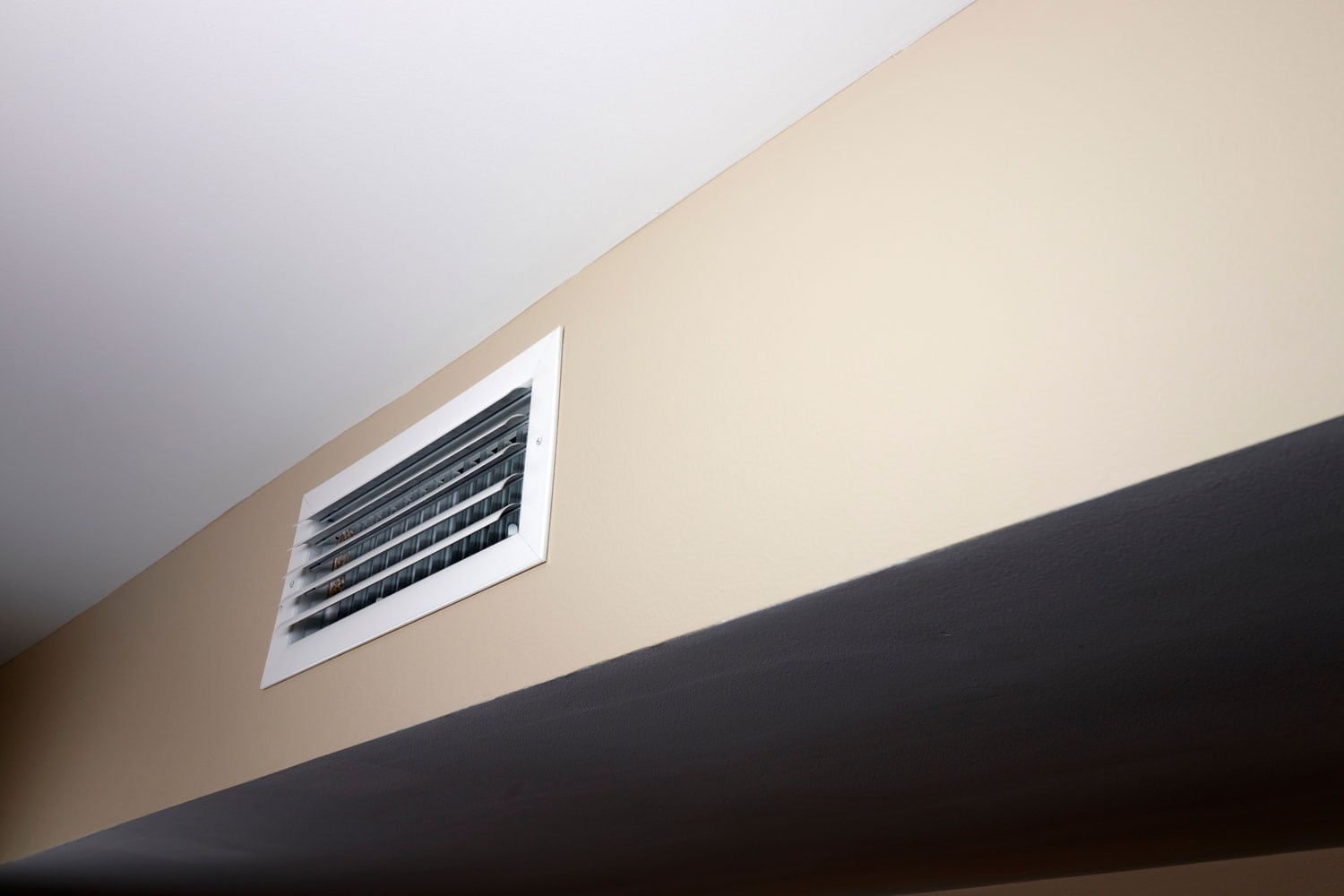
A quick and easy way to improve the airflow through your house is to open all of the air conditioning vents.
If a room feels stuffy and stale, there's a good chance that the culprit is simply a closed vent. Opening all of the vents throughout your house will significantly improve the overall airflow.
Use Fans
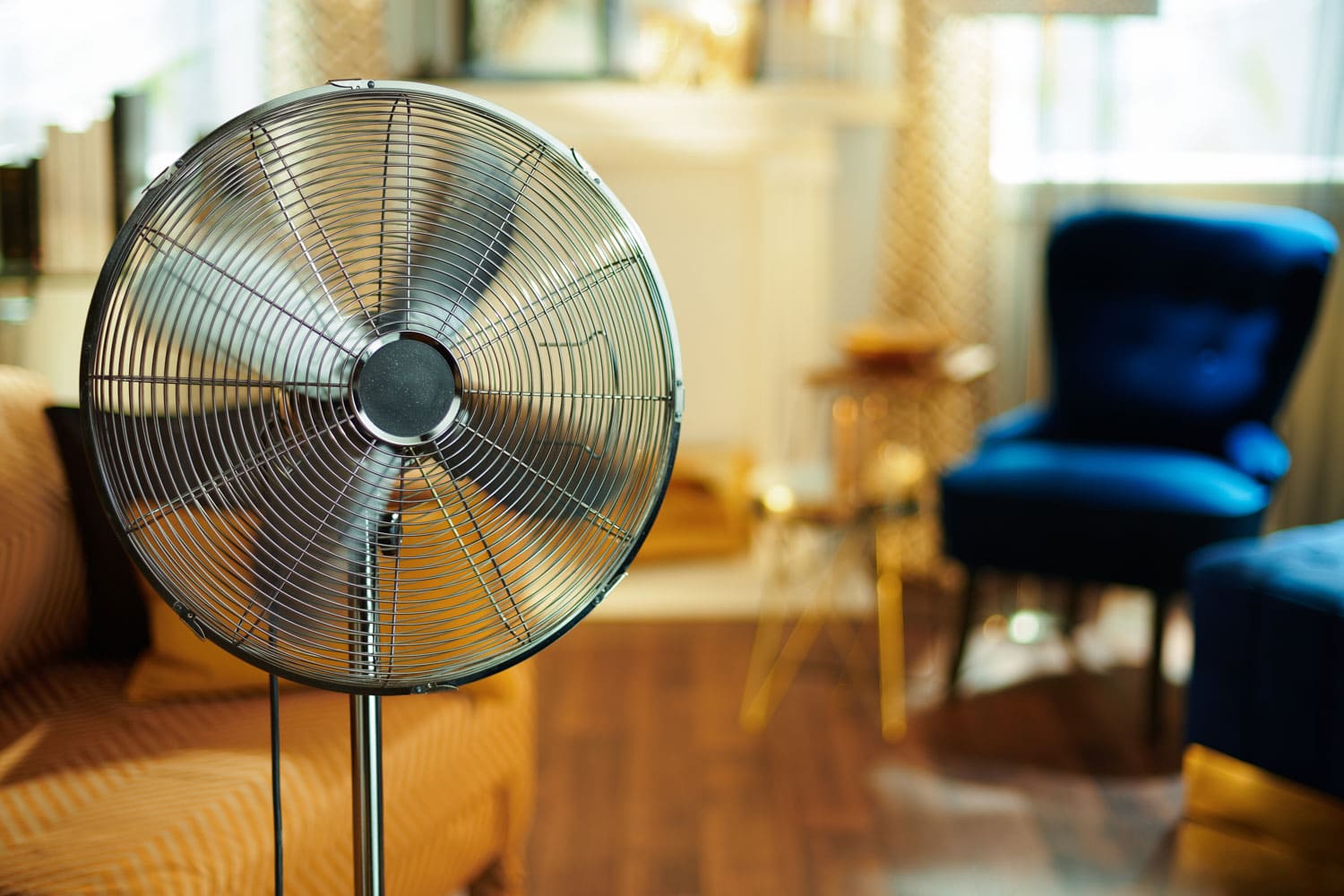
Fans are another great way to improve the airflow in your house. If you have ceiling fans, turn them on and adjust the speed to your liking.
You can also strategically place tower fans throughout your house and enjoy the increased airflow. But remember—fans don't replace the inside air with fresh air, so be sure to continue airing out your house. Check out this oscillating tower fan:
Lasko Portable Electric Oscillating Tower Fan
This 42-inch oscillating tower fan has three different speed settings, and it comes with a remote for your convenience.
This fan is known for significantly improving air circulation, and the best part is that it does so quietly. The fan is silver, so it will blend in seamlessly with virtually any home's interior.
Click here to see more on Amazon.
Inspect Air Ducts
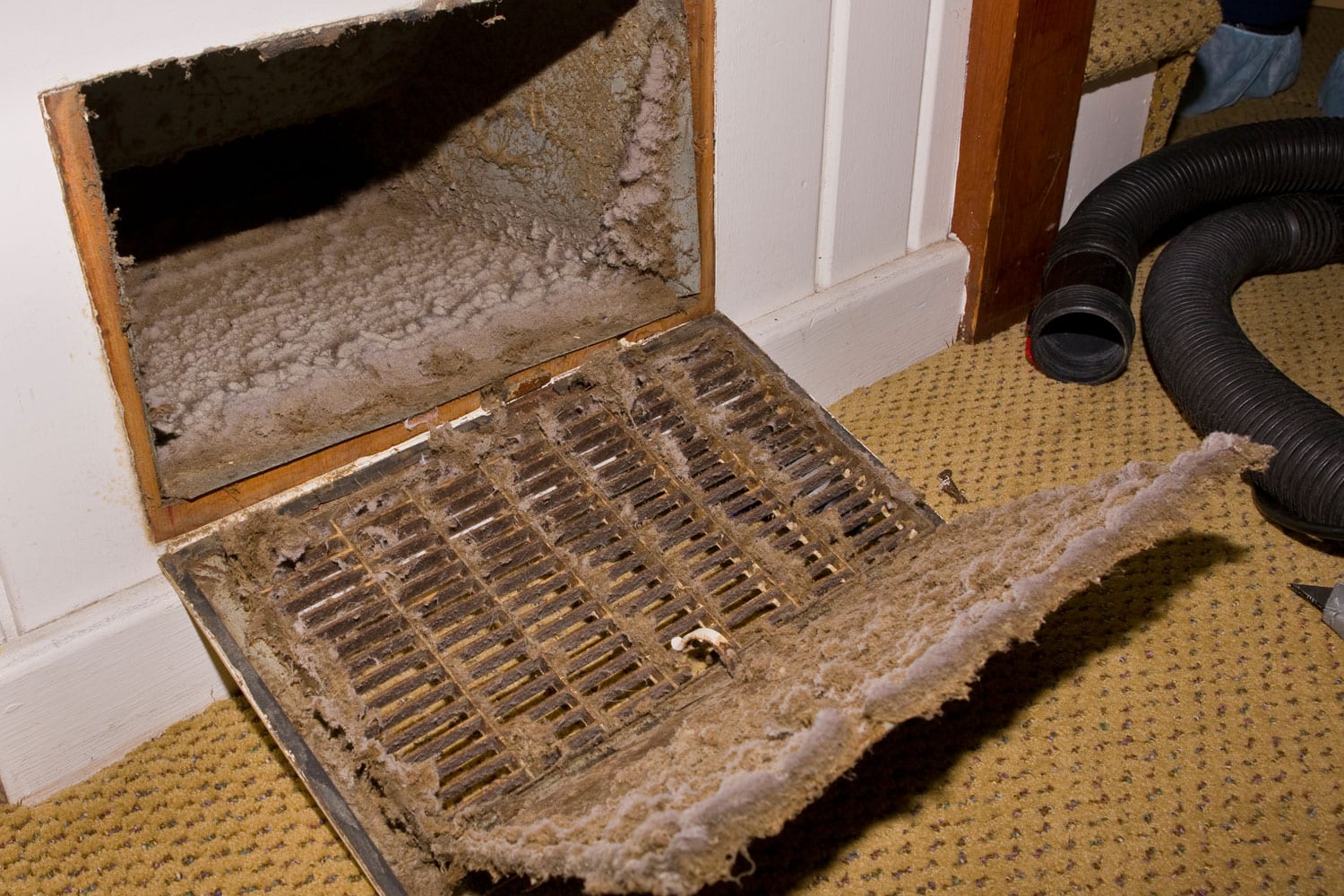
Small cracks or holes in the ductwork cause air to leak which adversely affects the airflow throughout the house. Thus, it's a good idea to regularly inspect your air ducts to ensure that they are in good working order.
Can I Air Out My House During Winter?
You absolutely can, and you should! No matter how frigid it is outside, the need for proper ventilation remains the same.
In the colder months, try to air out your house in accordance with the recommended protocol, but if it's simply too cold, leave a window or door open as long as tolerable to flush the old air out of your house.
How Do I Air Out An Apartment?
If you live in an apartment, you might be wondering whether or not you can air out your space to purge it of stale air and replace it with fresh air. You can, and the protocol is similar to that of airing out a house.
To air out an apartment, simply open the windows and any doors that lead outside for 5-15 minutes daily or every other day depending on the use of a fireplace or woodstove and the presence of foul odors.
How Do I Keep My House Smelling Fresh?
Everyone wants a house that smells nice and fresh.
The good news is that the process discussed in this guide will go a long way toward giving your house a fresh scent, but there are some additional methods you can employ in concert with the aforementioned protocol; we'll discuss them below.
Get Some Indoor Plants
Indoor plants are a great way to give your home a continuous fresh scent, as some actually remove toxins from the air while putting out fresh air.
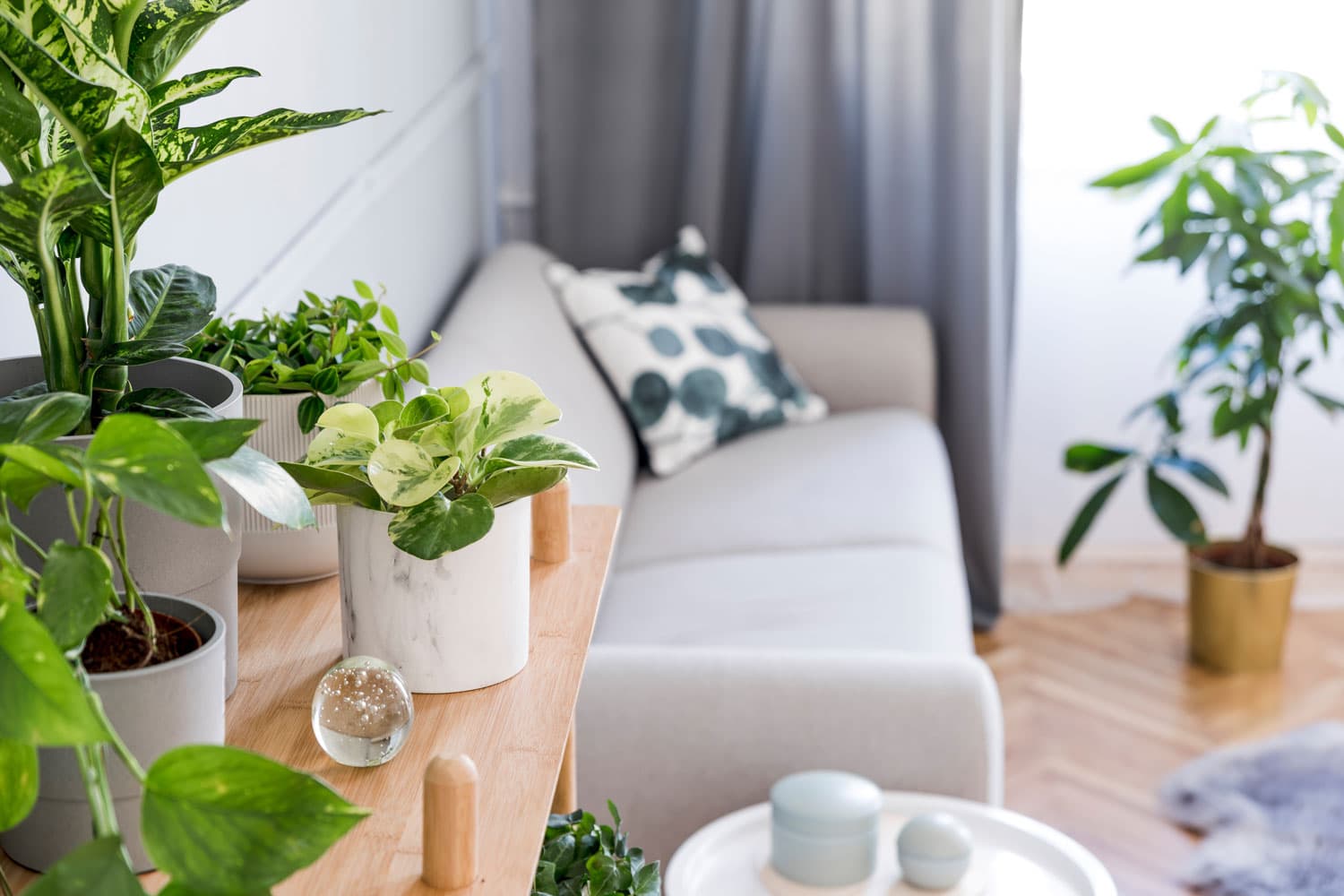
The more indoor plants you have, the more fresh air is introduced to the inside of your house.
For optimal results, it's recommended to space plants around the house, ideally in high-traffic areas like the living room and kitchen.
Diffuse Essential Oils
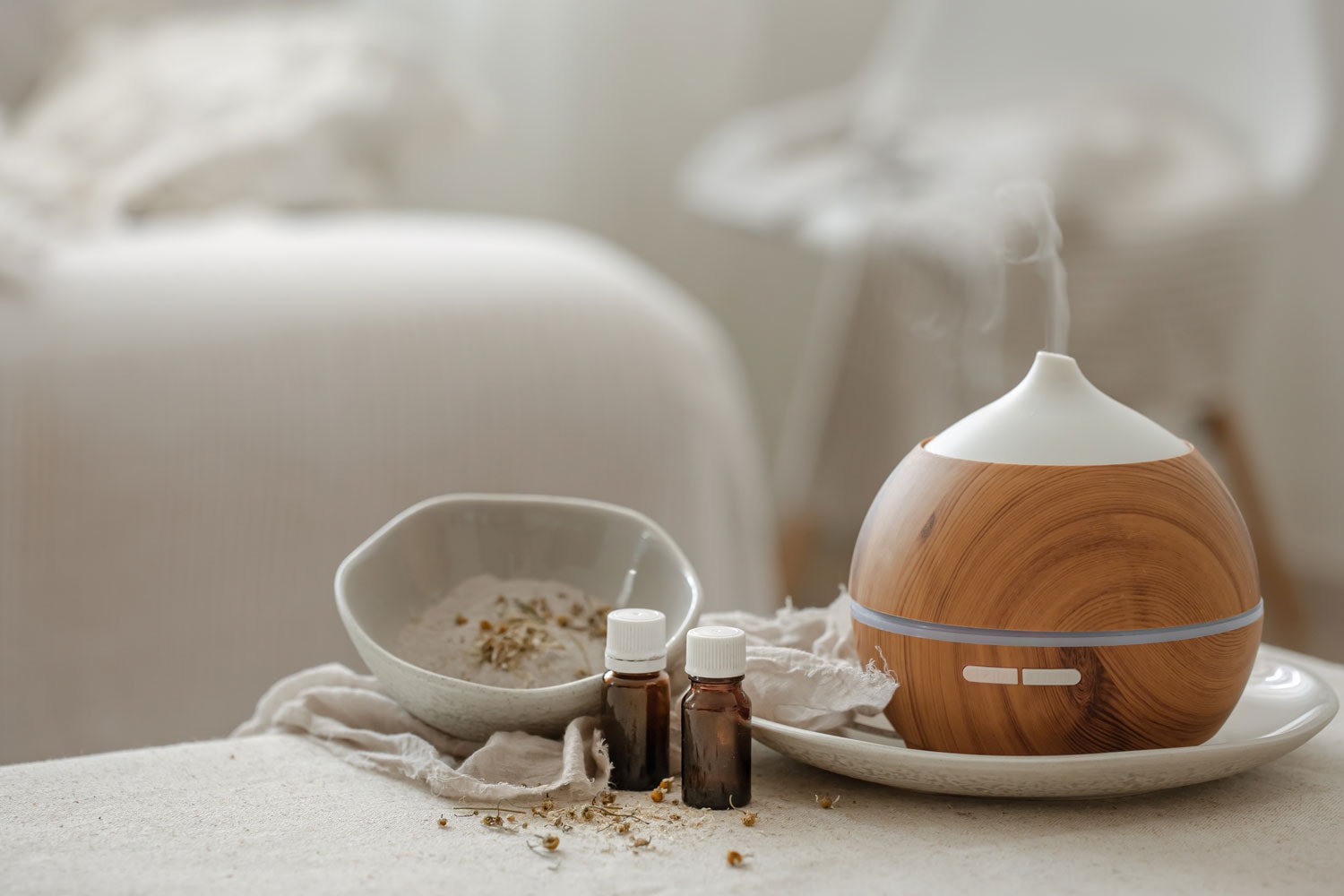
Diffusing essential oils is a great way to keep your home smelling fresh. Essential oils are a great substitute for harsh artificial air fresheners. Check out this essential oil diffuser kit:
Pure Daily Care Aromatherapy Set
This kit by Pure Daily Care includes a diffuser and 10 essential oils: tea tree, clove, eucalyptus, lavender, jasmine, nutmeg, lemongrass, orange, peppermint, and spearmint.
The diffuser has a 300-milliliter capacity, and it has multiple light modes and other settings.
Click here to see more on Amazon.
Keep The House Clean
One of the easiest ways to keep your house smelling fresh is to simply keep it clean. As dust and dirt accumulate in the carpet and on the various surfaces throughout the house, the smell inside the house will become foul.
Following a regular cleaning regimen (that includes cleaning furniture and vacuuming) will keep your house smelling fresh.
In Closing
We hope this guide has helped you better understand the importance of regularly airing out your house. Open those doors regularly to enjoy that fresh outside air!



